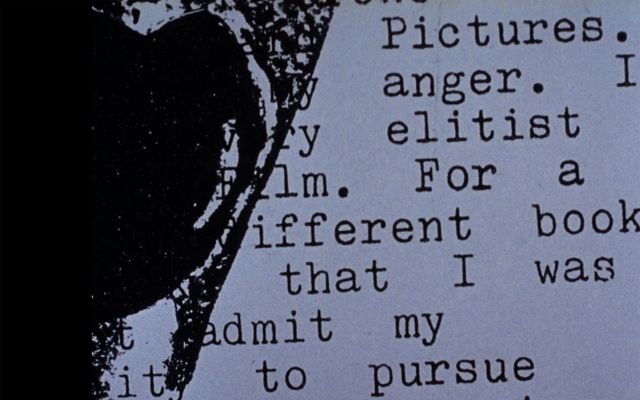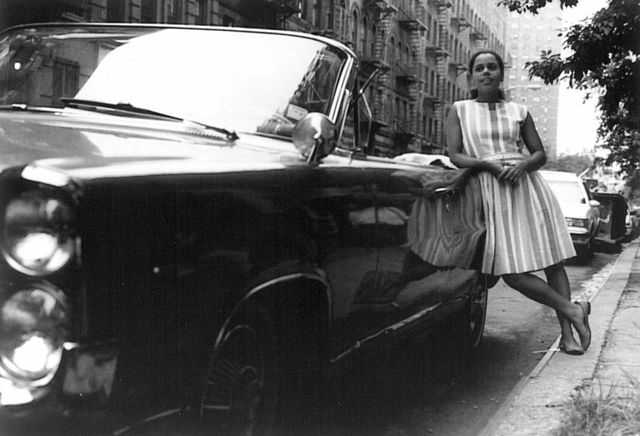Cinema
Chronicles of a Lying Spirit (by Kelly Gabron) | Privilege
Thu, Jun 23–Thu, Aug 25, 2022
Every Thursday
2.30 pm
Admission with exhibition ticket

Chronicles of a Lying Spirit (by Kelly Gabron)
D: Cauleen Smith, USA 1992, 6 min, English OV
Chronicles of a Lying Spirit (by Kelly Gabron) is a densely layered work in which competing voice-overs vie to tell the story of Cauleen Smith’s life, interweaving her biography with a larger history of Black experience in the United States. Over a series of collages combining text and image, a male narrator speaks in the third person, offering dates and facts, while a female narrator speaks in the first person, providing a more subjective account; both veer into fabulation. In the words of film scholar Sarah Keller, the film “conveys the problem of self-representation, in that it depends on the audience to sort through what is presented and to find the ‘truth’ – or even just the salient ideas that converge around a sense of a singular self.” It contains two repetitions of the same material, a decision that Smith remarks “has often been interpreted as some sort of rebellious statement.”

Privilege
D: Yvonne Rainer, USA 1990, 102 min, English OV
Yvonne Rainer’s sixth feature addresses menopause—a subject rarely tackled by the mass media—and experimentally fictionalizes an episode from the artist’s own life, when she first arrived in New York and moved into a predominantly Puerto Rican and African American neighborhood. In 1991, Rainer explained the centrality of race in Privilege as being motivated by two factors: “It was a gradual awareness of, one, the limitations of feminist film theory, as it has circulated around Lacanian, neo-Freudian theory; and, two, this incident in my own past that constitutes the flashback in the film, which had been troubling to me. ... The so-called postcolonialist cultural writing of the last five years or so moved me to think about a film around that incident.”